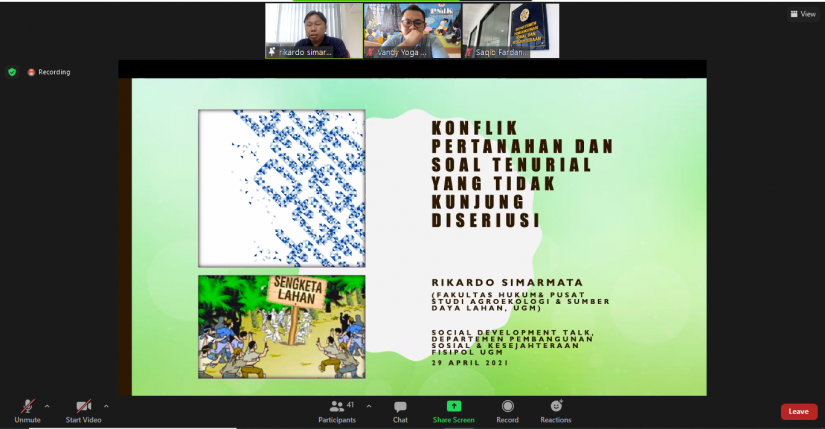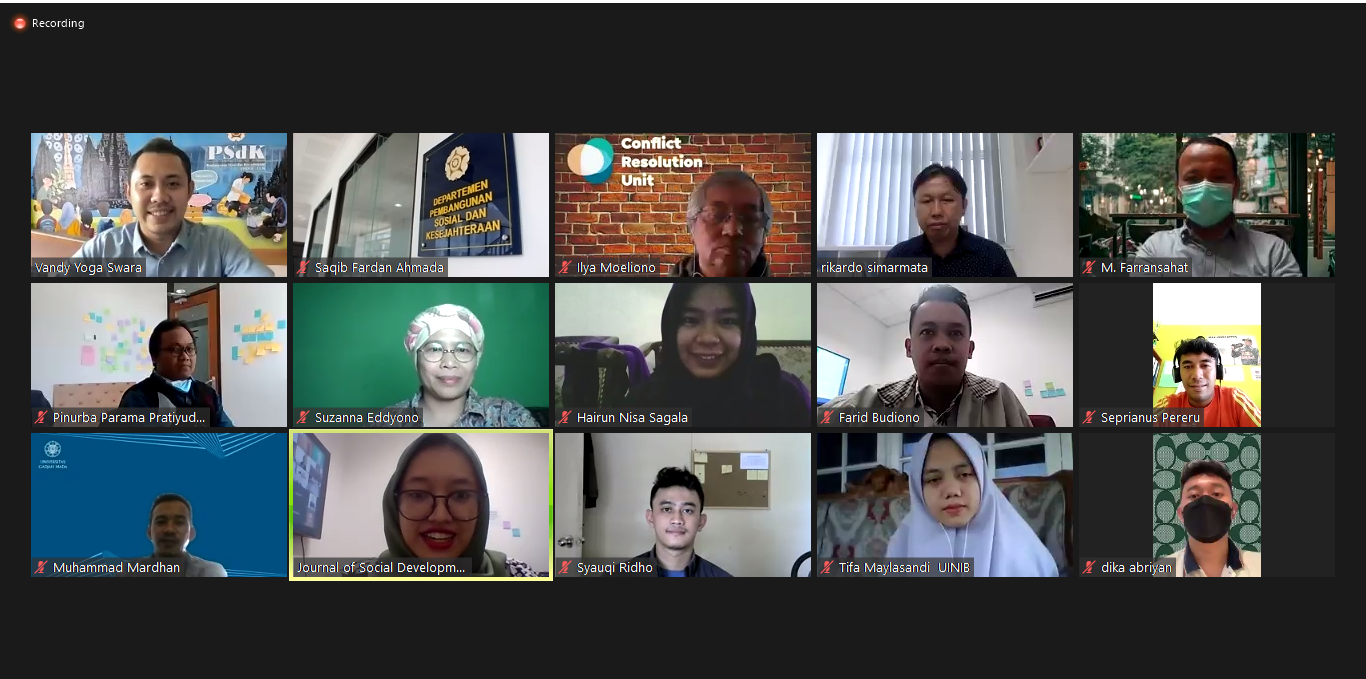
Yogyakarta, April 29th 2021━Social Development Talks (Sodet) came back with another discussion on Thursday (29/4). This discussion was called Land Conflict and Tenure Issues That Have Not Been Served. The speakers in this discussion were Rikardo Simarmata, SH., Ph.D., the lecturer of the Faculty of Law of UGM. This discussion was held on Zoom and was moderated by Vandy Yoga Swara, S.Sos., M.A., the lecturer of the Department of Social Development and Welfare of FISIPOL UGM.
Rikardo began the discussion by explaining that the social problems that arose from land tenure issues cannot be separated from policies and regulations. “Social and economic problems cannot be separated from the policies and regulations that cover them, especially if we place them as causes,” Rikardo added. He also added that policies and regulations regarding land tenure in some cases have triggered conflicts or disputes regarding land tenure.
In his presentation, Rikardo mentioned that there are at least four causes of tenure cases. First, the unclear land tenure rights claims. The second is the granting of permits or rights by the government which is also a source of conflict. Third, the unequal distribution of benefits, it is emphasized by Rikardo that inequality of power also causes unequal distribution. The fourth is conflict cashing behavior by free riders and intermediaries, for example by local community organizations.

Rikardo continued with his presentation regarding the actors involved in land tenure conflicts. These actors include state or government institutions acting as licensees and rights givers, as well as managers of state land and forests. “The government manages areas inside and outside the forest as well as conservation areas,” he explained. Other than the government, Rikardo also added that there are corporations as the license holders from the government, despite the fact that there are corporations that do not have licenses too. The last actors are intermediaries, such as individuals, community organizations, political organizations, community leaders, and traditional functionaries.
In this discussion, Rikardo not only explained the causes and actors involved, he also showed statistics and several tenure cases that occurred in Indonesia. Rikardo also shared the results of his research that had been carried out in the 2015-2020 period. The explanation of this material then continues on the impact of land conflicts, the anatomy of conflicts that looks at the causes and actors involved, land tenure problems or cases, and the resolution of tenurial conflicts. Rikardo also explained an analysis of land tenure policies and regulations on the topic of tenure or land tenure issues.
